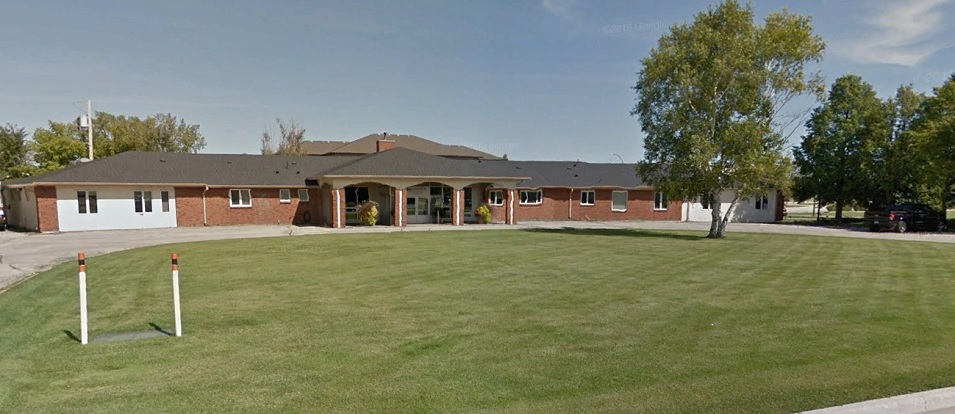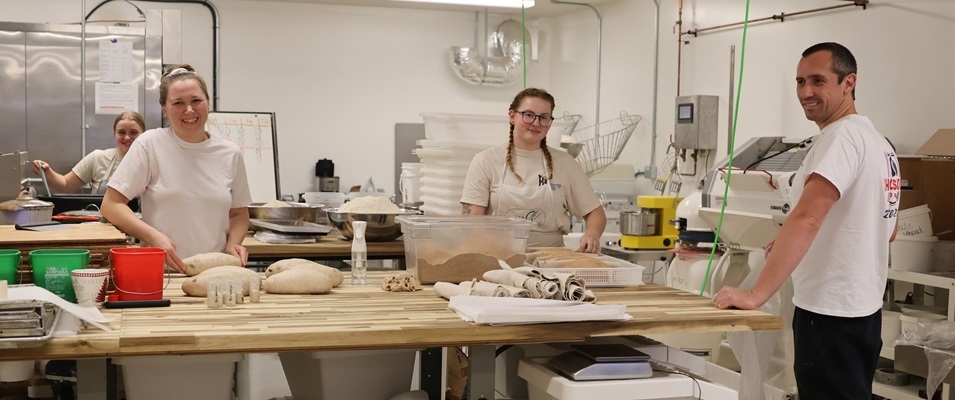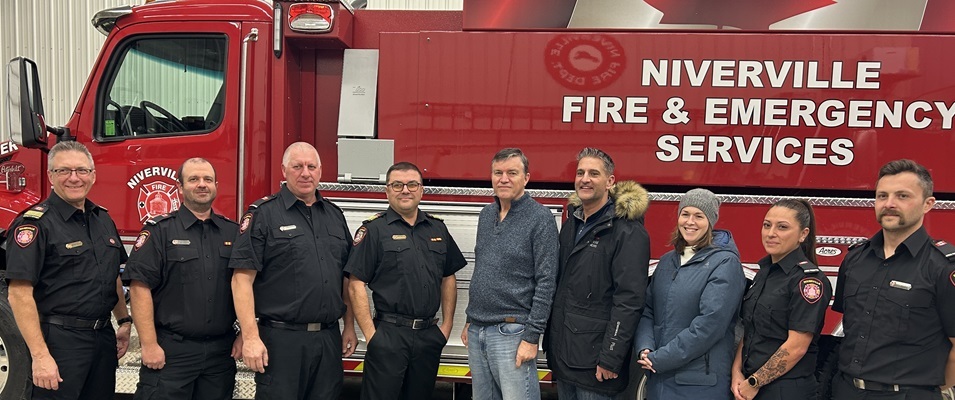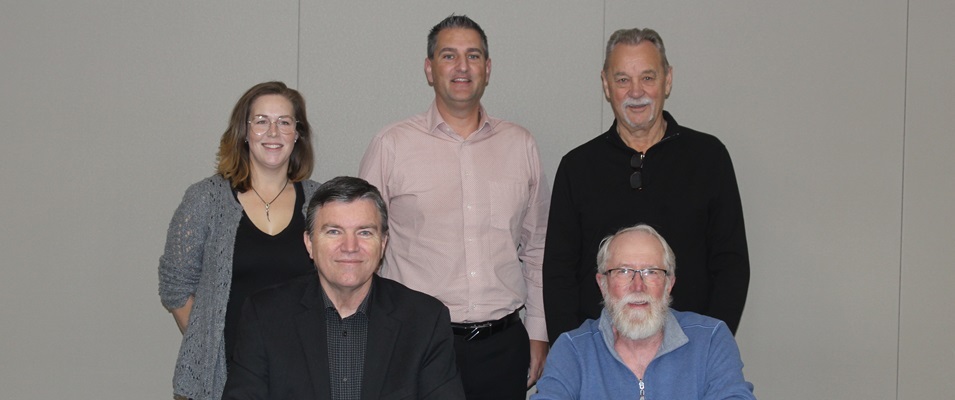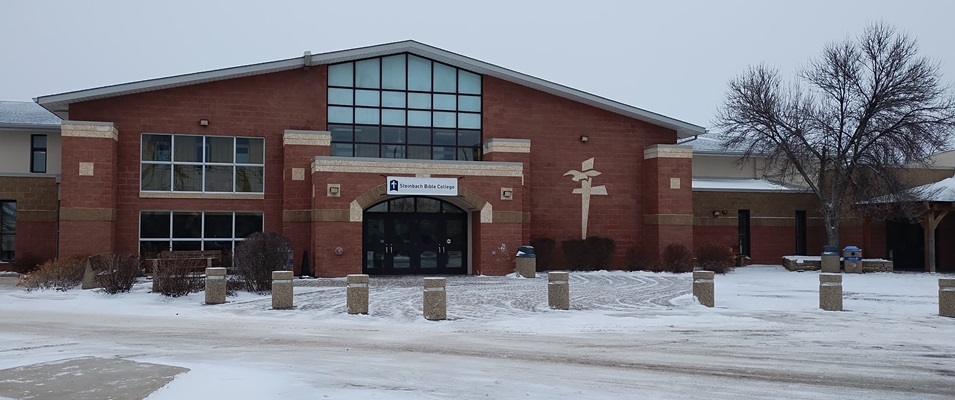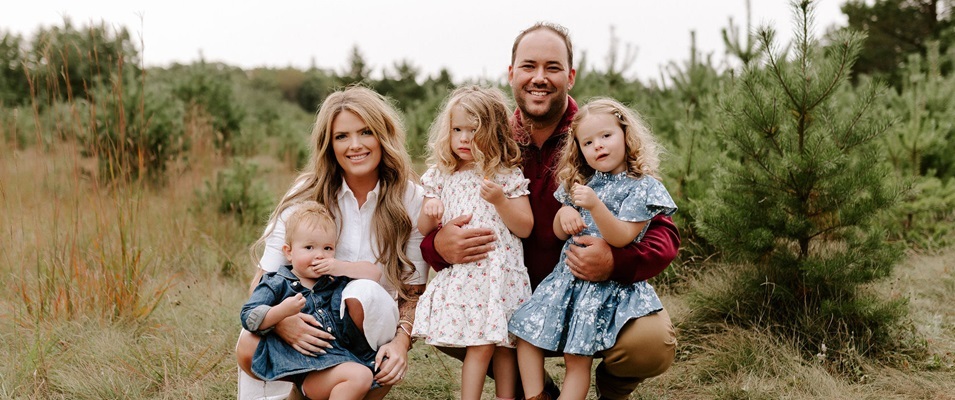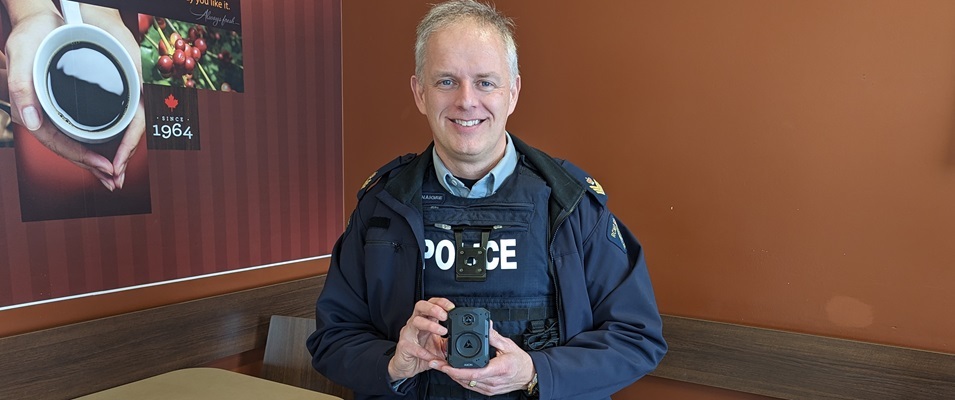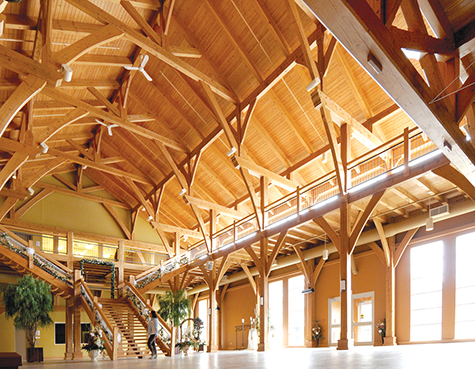
Though the Niverville Heritage Centre (NHC) is an attractive collection of buildings and amenities, there lies a soul within that resounds loudly when you stop to listen. They are the visionaries, past and present, who speak with a voice for change. They have a story to tell about making the seemingly impossible possible.
Much of the story of the NHC revolves around two great themes: full-scale housing options for seniors, making it possible for us all to remain here until the day we die, and a broad range of medical services for the entire community.
It can be said that the starting point for both began with Norman Wittick, a pioneer of Niverville and a community champion. He was instrumental in forming the Niverville Health Foundation (NHF) and bringing the first medical doctors to town. Though he himself had to leave the community to pursue aging options in his later years, Wittick bequeathed a financial legacy to his beloved hometown that would set the stage for our current medical facility and aging-in-place model.
Many champions have followed—too many to name. This story is about altruism at its finest, winning against impressive odds, and proving that dreams are never too big.
“My parents were fortunate to be able to benefit from the rapid build-out of a complete range of senior services in Niverville,” says resident Norman Klippenstein. “The fact that our family can walk over, in just a few minutes, to see our mother at any time of day is invaluable to us and has made a world of difference to her quality of life, allowing her to keep the close connection she needs with her family.”
The NHF, a community volunteer group, can be credited for its tireless fundraising efforts that brought us the original 55-plus residences and much of the continuum of aging and medical facilities. Much of their fundraising takes place at the annual Heritage Centre gala. We can state that because of them, our facilities are fully community-owned, with little to no outside financial assistance from the government.
Another level of fundraising happens through the local Church Advisory Council, which collects and administers donated funds so that lower-income earners have equal access to seniors care at our facilities. The names of those in need are never revealed to this group, just the need, providing anonymity for the recipients. The goal is that no individual should ever be turned away due to financial barriers.
In the case of assisted living, there is no government assistance available for capital costs or resident care. Many assistant living facilities are privately run, making them costly options for seniors. There are also not enough facilities, potentially due to a lack of profit motivation to build them. Our facility, the Niverville Credit Union Manor, not only provides suites at competitive rates but includes daily meal service, laundry service, and light housekeeping—services that seniors in other facilities pay a premium to receive.
Nominal government funding becomes available at the supportive living level, but only for homecare. This isn’t nearly adequate to provide the 24-hour care that our manor residents have access to. Due to our unique relationship with our Regional Health Authority (RHA), our residents are cared for by certified, professional staff as opposed to many private facilities, the staffs of which may not be provincially regulated.
At the final stage of senior care is the personal care home (PCH). Based on the odds stacked against us, Niverville should never have had one. We were in a Catch-22 position, with elders leaving our town for communities with seniors amenities. This made us, for decades, a young town with a median age of about 30 and not enough of an aging population for Manitoba Health to deem us in need.
Unlike the first levels of seniors care, PCHs are funded by the government for both resident care and capital costs. Capital cost funding, though, is very difficult to attain, and if granted can take many more years to be realize. After ongoing pursuit and years of being told no, Niverville’s community leaders fell upon an unlikely loophole: along with the RHA, they pursued Manitoba Health one more time for permission to acquire the rights to the St. Adolphe nursing home. Once again, through strategic planning, the resulting facility here is completely community-owned.
Unique to many other PCHs, ours contains a second floor Special Care Unit, with staffing qualified to care for those with the different characteristics of dementia.
Bonny Friesen, local resident and Resource Coordinator for the PCH, is a strong proponent of the PCH’s function within the Heritage Centre. Her parents have also benefited from our seniors facilities.
“Heritage Life is unique in that it is attached to a whole complex of activity,” says Friesen. “This is a huge advantage, as the daycare children often come to visit the residents. We have had activities where the children have joined the elderly to do crafts, visit, or sing. Families can take their loved ones to the restaurant without having to go outside. Our residents can make use of the atrium for walking and exercise therapy.”
Lack of good nutrition and loneliness are believed to be contributors to the onset of dementia. Enjoying communal, nutritiously prepared meals helps alleviate those concerns, along with the community connection offered by a shared public facility such as ours and the coming and going of little ones through their doors.
Not to be dismissed are the medical and primary care amenities we rely on. Doctors Chris and Mairi Burnett came to Niverville in 2005. Born in Scotland, trained in Belgium, and having practiced in countries around the world, the Burnetts chose to make Niverville their home, raising three sons here.
“Our aim is to build a robust primary care system that will outlast a couple of strange Scottish physicians, that will grow with the needs of the community, surviving the passing fads of government,” says Dr. Chris. “This town has a unique position, and I think vision, that makes that a possibility.”
The Burnetts partner with the RHA to deliver a wide scope of medical care. These include family medicine, travel health, public health and mental health services, homecare services, and a lab. Dr. Mairi brings experience in reproductive and women’s health.
By the spring of 2017, a new modern clinic will join the upcoming life lease building, providing main floor access to all medical services in one location. The intent is to create the kind of facility that will attract more doctors, provide clinical rooms for more advanced services, and cater to the public with longer hours, more days per week.
“We want to be leaders in the province and the country in healthcare services,” says Steve Neufeld, CEO of the Niverville Heritage Centre. “We have three doctors now, but the goal is to get to five.”
Though many provincial doctors are recruited on a contract basis, the Burnetts believe in a pay-for-service model. This means that doctors benefit based on the number of patients they attend to. Elsewhere, doctors are not encouraged to see many patients, because they are paid the same whether they see two per day or ten.
And when the Burnetts move on, the clinic will remain an asset of the community.
“We own no structure, other than some computers and desks,” says Dr. Chris. “Thankfully, gone are the days when a physician’s future income was dictated by a practice they sell at a later date. This building will continue to be owned by [those] who built it. The tricky thing about vision is that it needs to be shared and jointly owned.”
If we take a look backward, a mere ten years into Niverville’s past, it’s clear that we’ve come a very long way. And when you step outside of the shadow of the Heritage Centre building, a bright light shines on the people and passion that made it all possible.





